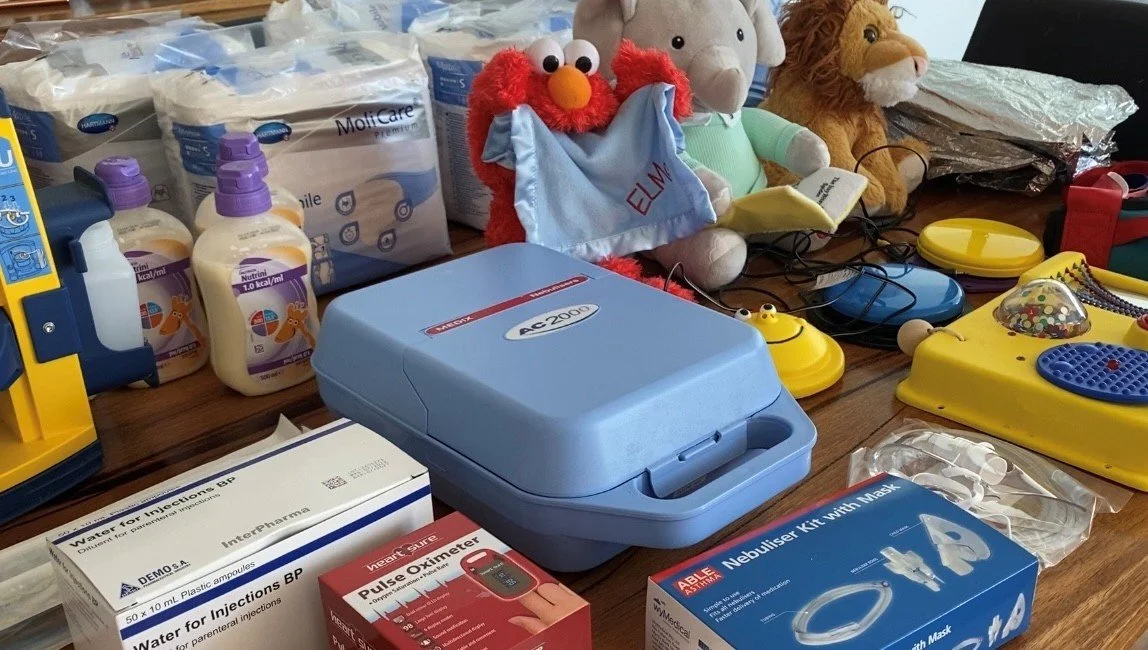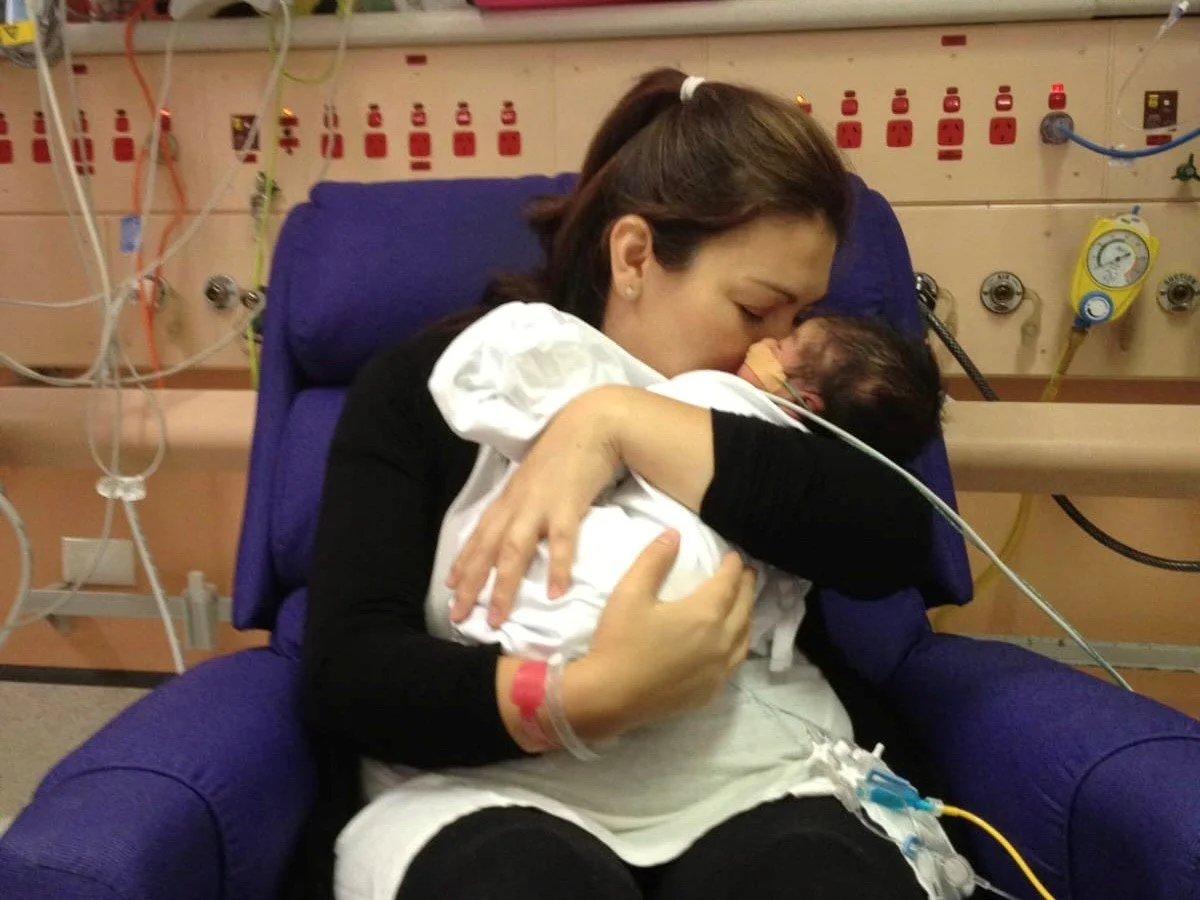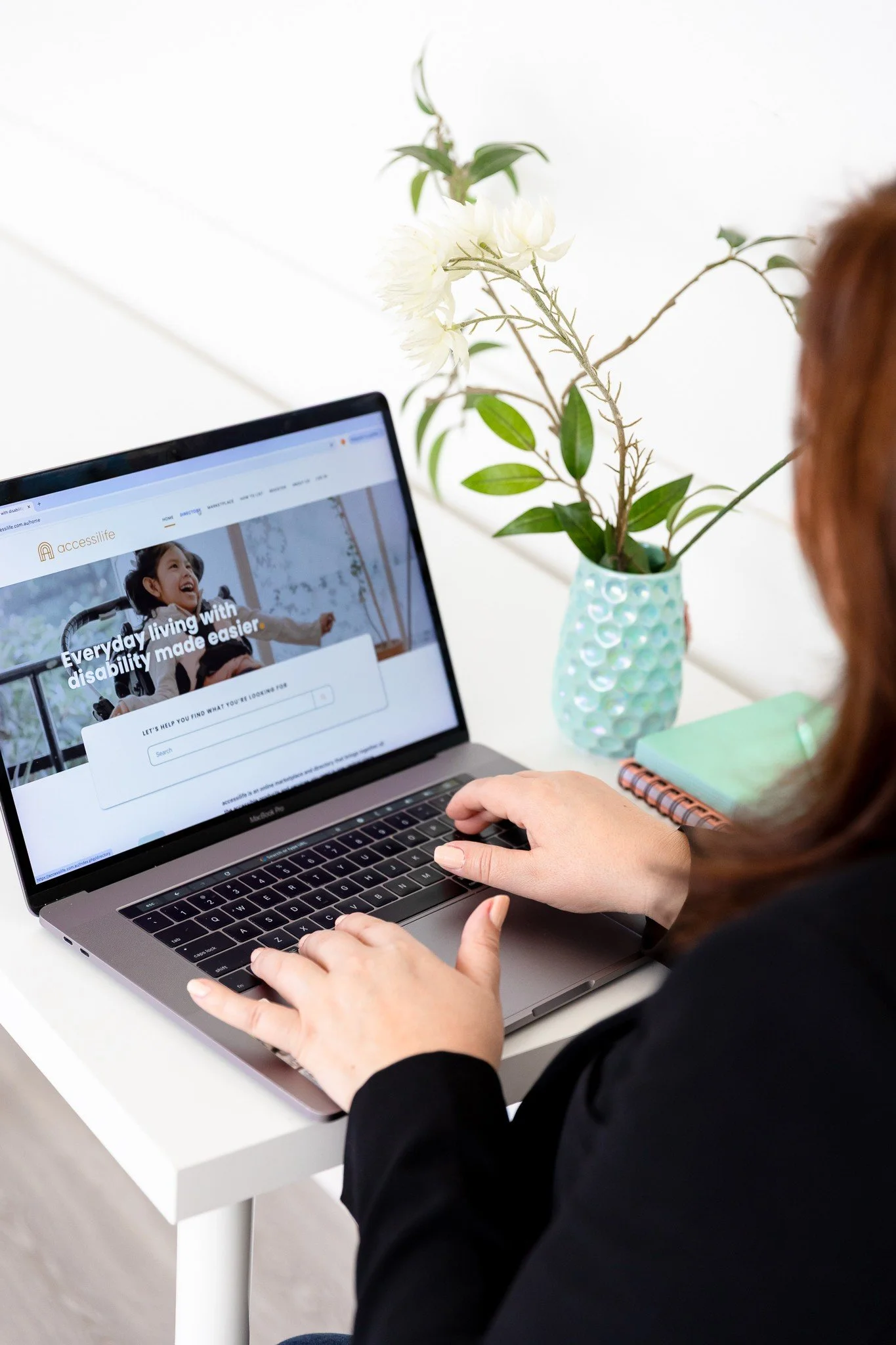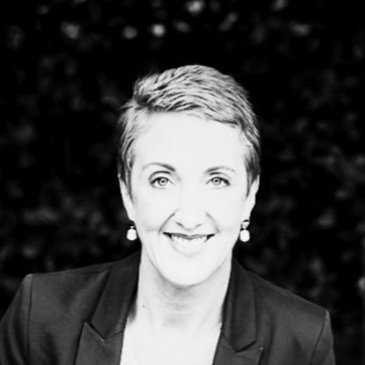Maria Jerez On Defining Your Purpose And Increasing Accessibility For People With Disabilities
Maria is the founder of Accessilife, a purpose driven start-up focused on giving families like hers greater access and choice to the products and services they need.
Lived experience has been the guiding light behind Maria’s social enterprise. Her youngest son lives with a range of disabilities requiring 24/7 care and access to a broad range of products and services. Early on she realised she was dealing with a fragmented system, which made it almost impossible to find what her son needed. So she set out to create it.
In Maria’s own words, Accessilife has been a labour of love, developed in between countless appointments and hospital admissions, whilst also working as a Special Counsel at Lawyerbank. She is now happily transitioning into the for-purpose sector, having recently finalised the Accessilife prototype and launching the provider-paid platform.
By bringing together verified, inclusive and accessible products and services onto a centralised platform, Accessilife creates positive social impact across the disability community by empowering individuals to make informed decisions, save time and gain greater independence in their daily lives.
Maria discusses how accessibility can make an immense difference in the lives of people with disabilities, and the importance of informed choice when searching for products and support.
Highlights from the interview (listen to the podcast for full details)
[Emma Dimech] - To start off, could you share a bit about your background and what led to you working in disability support and social enterprise?
[Maria Jerez] - Accessilife's story is quite personal. Essentially, it started the day my son Mateo was born. I had some unexpected complications during his birth, and he suffered lack of oxygen. As a result of that, he suffered a catastrophic brain injury which led to a range of lifelong disabilities, including cerebral palsy and epilepsy.
He's now thirteen years old and is a very happy, loving boy. His level of disability means that he needs 24/7 care and assistance with every aspect of his life, as well as access to a range of products and services from a wide variety of different providers. I realised early on that there wasn't one place I could go to find everything he needed. Instead, I was constantly searching across all these different sources, which you can imagine was frustrating, exhausting, and incredibly time consuming.
It was especially hard as I was already juggling a lot and I felt quite pressed for time, but even further, it was incredibly isolating. The fact I couldn't find what he needed made me think that he must be the only kid on earth that needs these things. Now, I know that that's definitely not the case.
This firsthand lived experience of the problem motivated me to come up with a solution to help families like mine. I wanted to create something that could make their lives easier and give everyone greater choice. That's really the reason we exist and it's what drives us every day.
I started developing Accessilife when I had some downtime in between working as a lawyer, raising a family, and being a full-time carer. I slowly started designing a prototype, something that I wanted to see because I was part of my own user-base.
To be completely transparent, when I started I wasn't consciously creating a social enterprise. I just wanted to build something that could help people. It's only recently that I've realised that is the essence of social enterprise.
It's fair to say that my journey as a founder has been very organic. I basically fell into the disability sector overnight. Everything was foreign at first, because until I had my son, disability wasn't directly part of my world. Now my life revolves around it.
While I didn't intentionally set out to be a social entrepreneur, it's where I feel I belong. Accessilife is now in its early stages and I'm proud of where we're at and what we're trying to achieve. It's taken a lot of passion, time, and persistence just to get here. I'm continually learning and I'm always keeping my focus on why I am doing the work I’ve set out to do.
One of the main goals of Accessilife is to enable people with disabilities to make more informed choices when searching for accessible products and services. Can you tell us more about how Accessilife is doing that and how you're helping families around Australia?
Accessilife is essentially an online disability directory and marketplace that brings together accessible products and services in a single place. It's completely free for beneficiaries to search and list on, and we generate income from providers who pay a fee to list their business on the platform.
Despite the fact there are five and a half million Australians, around twenty-one percent of our population are living with a disability. Finding the products and services needed can be almost impossible, and I believe that's tied to the immense stigma around disability.
Obviously, everyone's needs are different, but in my son's case, he needs access to a wide range of products and services. He needs help with his feeding, nutrition, mobility, toileting, transport, education, communication, and so much more. He needs extra support with every aspect of his life.
Those products and services range in size and complexity. Some of the things he needs are fairly simple and inexpensive, like syringes for his medication or bandana bibs to catch saliva. However, he also needs complex and expensive pieces of equipment like his power wheelchair.
My son also needs access to larger modifications, like to the home and vehicles to make his environment more accessible. On top of that, he needs access to a vast range of different therapies like physiotherapy, speech therapy, occupational therapy, and different support services.
What's important to remember is that these things are not wants; they are needs. These are essential products and services that he needs to get through the day and get the best out of life. You can imagine how frustrating it is when these essential products and services are so hard to find.
It adds all of this unnecessary time and stress to your day, while you’re already facing these barriers. It makes accessibility even more difficult.
Our mission at Accessilife is to shine a light on all of these products and services, regardless of size, funding, or complexity, and to bring them together in a central place where they can be found by people who need them. Centralisation is especially important because the disability system is extremely fragmented.
I am personally a fan of the National Disability Insurance Scheme (NDIS). I don't know where our family would be without it, but I appreciate that is not everyone's experience.
The reality is that the NDIS isn't the be all and end all for disability. In fact, eighty-nine percent of people living with a disability are not eligible for the NDIS, either because they're over sixty-five or their disability is deemed to not be significant or permanent.
Accessilife isn't limited to the NDIS. It's for anyone who needs it at any stage of their life. Opening the door for everyone is critical because anyone could need it at any time. There's a famous quote by well-known disability advocate Jonathan Kaufman, which I absolutely love, and it talks about how disability is the largest minority on earth.
He describes it as being the essence of diversity, because it runs across race, ethnicity, gender, age, class, and sexual orientation. Importantly, it's the only minority group anyone can join at any time, whether you're a visitor passing through or a permanent resident. If we are lucky enough to age, we will all join this community.
My ultimate goal is that if and when someone finds themselves in the disability community, either permanently or temporarily, Accessilife would be the place to help them find all the things they need easily and quickly, and help make their lives more accessible.
There are so many people affected by disability in some way. Given the statistics, everyone knows someone who lives with a disability. Yet, finding the right products and services is still so difficult.
Throughout your journey with Accessilife, what have been some of your biggest challenges that you've had to face and how have you overcome them?
For me, the biggest challenge was limited time. Especially in the early days, I felt I had a great idea that I was really passionate about and I had all this motivation to progress it, but there were not enough hours in the day for me to take it forward in a meaningful way. I was working, raising a family, and being a full-time carer, so there just wasn't enough time.
The lack of time made the early development phase feel really long and protracted. I would dedicate every spare minute I had to developing it, but it felt like such an uphill battle which gave rise to a lot of self-doubt. A lot of times I asked myself if it was even worth it.
Overcoming that challenge was difficult, but there were a couple of things that really helped. Firstly, I think holding onto my 'why' was really critical for me. I had to keep remembering why I was working on this, which helped me in dark moments when I felt like giving up.
The second thing was reaching out for help. I was extremely fortunate because I was able to get help from a family member with an ICT background, who helped me develop the platform. That was pivotal in bringing my idea to life, taking it from paper to an actual tool that was live.
Thirdly, the thing that helped me at the start was applying for grants and getting funding. That's been crucial because it's helped me carve out time that I can dedicate to Accessilife. That's genuinely been the biggest difference for me.
You’re an AMP Foundation Tomorrow Maker and you're currently getting support to develop and grow Accessilife. What have been your reflections and learnings from the support to date?
The support has been amazing and absolutely invaluable. I'm truly grateful to the AMP Foundation for selecting me as a Tomorrow Maker.
I first became a Tomorrow Maker last year through the AMP Foundation Spark Program, which was an amazing deep dive into social enterprise. Through that program, I got the support I needed to develop my business model, which was exciting because I didn't have one until that point.
Now, through the Ignite Program, I'm getting support and funding from the AMP Foundation to help implement that business model, which is absolutely incredible.
I've learned so much and am still continuing to learn, but one aspect is to better articulate my vision, my mission, and my purpose, and why that's so important. That's helped me pitch Accessilife to potential customers and beneficiaries, and to help me generally spread the word about what we're doing.
I've also learned how to measure my impact. I always knew we were making an impact, but actually measuring it has been something I've struggled with up until now.
The other amazing benefit of being an AMP Foundation Tomorrow Maker is being part of the Tomorrow Maker community. I have met the most incredible people on this journey, and I'm totally blown away and inspired by them.
They're all doing these amazing things, and I love hearing their journeys. I always learn something from them after every conversation, without fail.
The people running the programs themselves, the AMP Foundation and Impact Boom, are equally amazing and so incredibly supportive, not just of our social enterprises, but also of us as individual founders. There's a really strong focus on founder wellbeing. I feel so grateful and incredibly lucky to be part of it all.
What advice would you give to like-minded change makers looking to create an impact?
My first thing is to just give it a go. If you're passionate about making a difference, get started, even if it's in a really small way. Taking steps in the right direction, even if they're baby steps, are going to be better than taking no steps at all.
Before you know it, you'll be on your way and paving your own path. The second thing is to always focus on your 'why'. Be clear about what social problem you're trying to solve and hold onto that as your guiding light. That’s always helped me in the down times, which do happen.
My third thing is to reach out for support, not just from your own support network, but from the social enterprise ecosystem of local and national organisations, like Impact Boom, that are dedicated to helping social changemakers. It amazes me that these organisations exist, and they genuinely want to see you succeed.
What inspiring projects or initiatives have you come across creating social change?
This is a tough one because there are so many inspiring projects and social enterprises out there, and they're all doing amazing things. I'm totally inspired by everyone I meet, including all of my AMP Foundation Tomorrow Makers on the Ignite Program. They're all doing incredible work.
I'd like to give a special shoutout to a previous Tomorrow Maker, Disinfluencer, who are doing great things in the disability space. They're on a mission to increase disability representation in the media, while also giving people with disabilities meaningful employment. That initiative has also been driven by firsthand lived experience in the disability world, which I really love and admire.
To finish off, what books or resources would you recommend to our listeners?
My favourite book so far is Start With Why by Simon Sinek. As soon as I heard about The Golden Circle when I was completing the Spark Program, I rushed out to get the book because it resonated with me. It's such an easy and enjoyable read, and it has such an important message for social changemakers.
In terms of resources, I would encourage people to link with service providers in their local area who are dedicated to supporting social enterprises. I’m based in Canberra, so I've linked with the Mill House Ventures who support social enterprises in my region, and they've offered me a lot of valuable support and encouragement from the very beginning. It's always important to reach out to those organisations where you can.
Initiatives, Resources and people mentioned on the podcast
Recommended books
Start With Why by Simon Sinek










